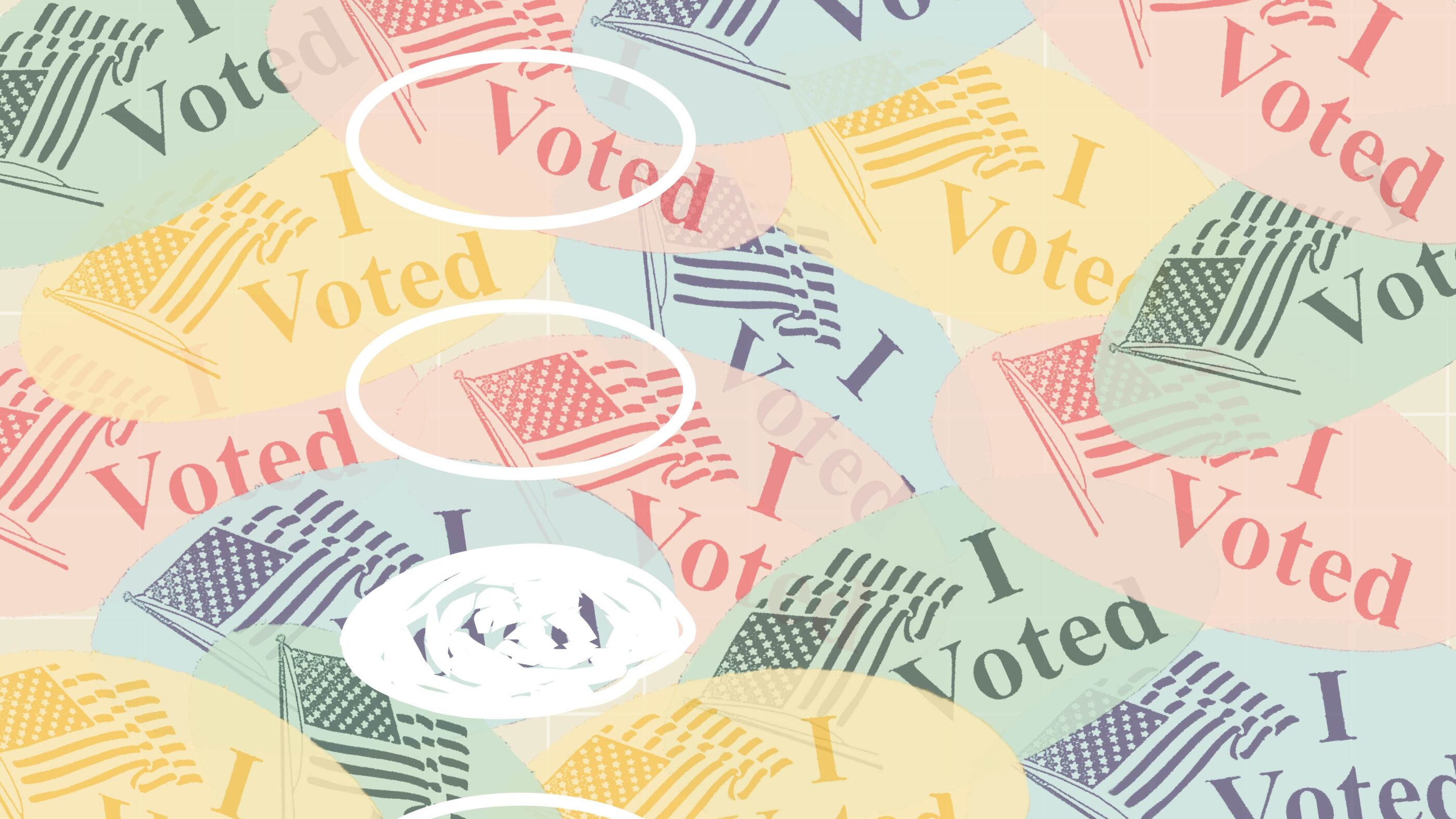Local elections are important in the fight to protect basic rights and civil liberties. From what books and events are available in a local community, to policies that protect the rights of students in public schools – local elections matter. There are many important races on the ballot in the 2025 Consolidated Election which impact your rights and civil liberties.
Library Board
Local library districts have become central to attacks on reading materials and programs that teach accurate history or feature stories of people with different races and cultures, as well as those exploring gender and sexuality. Among other things, library board members will:
- Oversees programming and material selection for the library. Such programs and materials could be inclusive and diverse include Drag story hours, and displays or events featuring BIPOC or LGBTQ+ themes and authors
- Make decisions over challenges to ban books, or challenges to inclusive library displays
- Adopt and enforce policies about who has access to the library facilities for programs and events
- Provides access to free resources, employment assistance programs, and access to the internet to members of the community who need it
School Board
Members of a local school board are elected to oversee the operations and budget of the local schools – whether at the elementary or secondary level. Among other things, a local school board member will:
- Create and adopt policies regarding students, including students who are transgender, students with disabilities, students of color
- Make decisions about curricula, including the depth of materials available about history, comprehensive sexual health education, and other topics
- Set disciplinary policies that can enhance or limit the school to prison pipeline
- Make determinations about surveillance of students, as well police officers within the school
- Create and adopt policies for if ICE attempts to enter a school
City/Town Council
Members of a city/town council set policies and create priorities for the village or town. Among other things, members of city/town council will:
- Consider ordinances including policies that inhibit people’s ability to protest, ordinances that restrict those who are houseless, or creating sanctuary cities for abortions
- Adopt budgets that create priorities for the municipality, including funding programs that advance civil liberties
- Set policies for police in the community, including use of force policies and creating civilian oversight of the police
- Oversee and approve the use of surveillance technology by police in their jurisdiction including automatic license plate readers
Mayor
The mayor is the chief executive of a local municipality. Although the powers of a mayor can vary widely (depending on size of the community and local ordinance), the mayor is often the most visible representative and spokesperson for a community. The mayor will:
- Give final authorization to local ordinances – including policies adopted by the city council that impact civil liberties
- Appoint leaders of municipal departments and members of local boards and commissions who can work in those locales to advance policies that protect and expand civil rights and civil liberties
- Set the agenda for city/town council meeting, including ordinances
- Create relationships with other policy makers and influence policies in Springfield
Park District Board
Park District board members oversee what can be a vast system of outdoor activities and community events. Among other things, a local park district board member may:
- Create or adopt policies that determine whether or not all people will have access to park facilities including ensuring access for those with disabilities
- Set policies for programs at park district facilities, including programming that serves the entire community
Community College Board Member
Community Colleges provide a range of programming and services to the public, including offering higher education opportunities. Board members will:
- Create budgets and set policies that determine the range of services to be offered to the community
- Make decisions on the type of curricula offered
- Make policies that control how college facilities are open to outside groups for programming and events
- Create programs to make college more accessible to those with criminal records
- Create and adopt policies for if ICE attempts to enter the school

